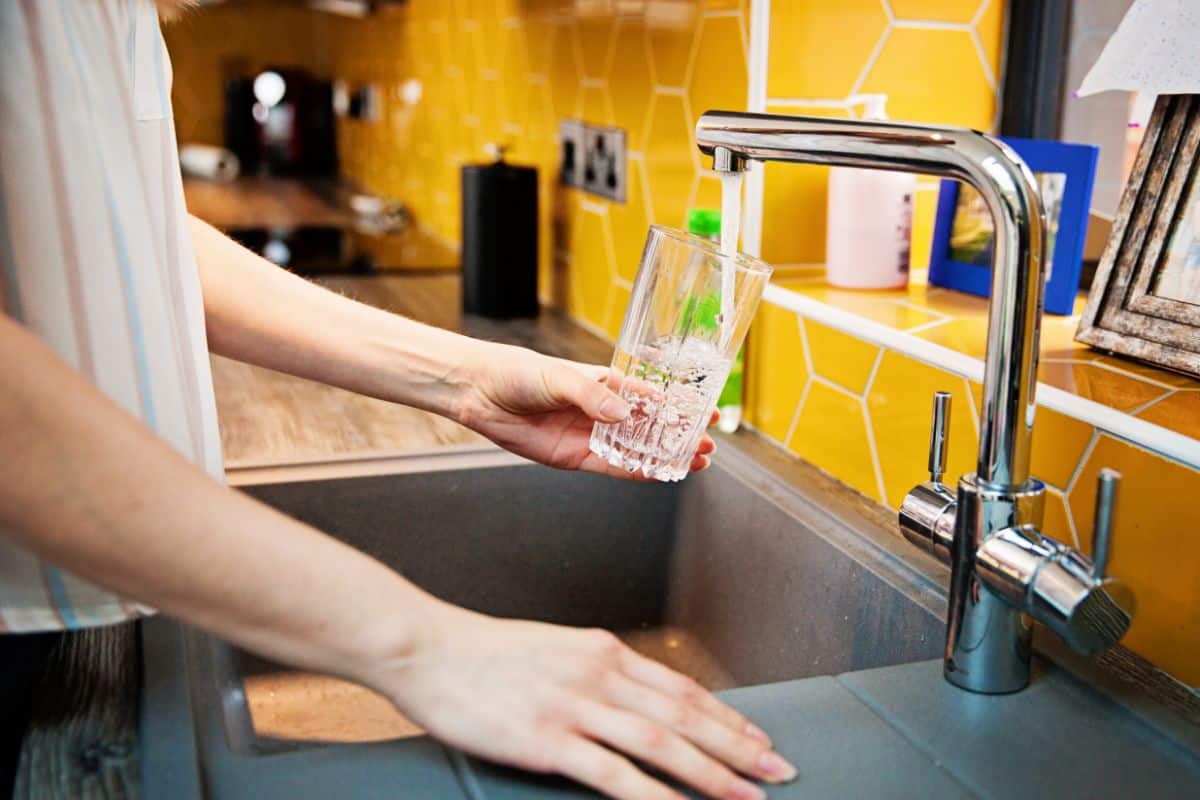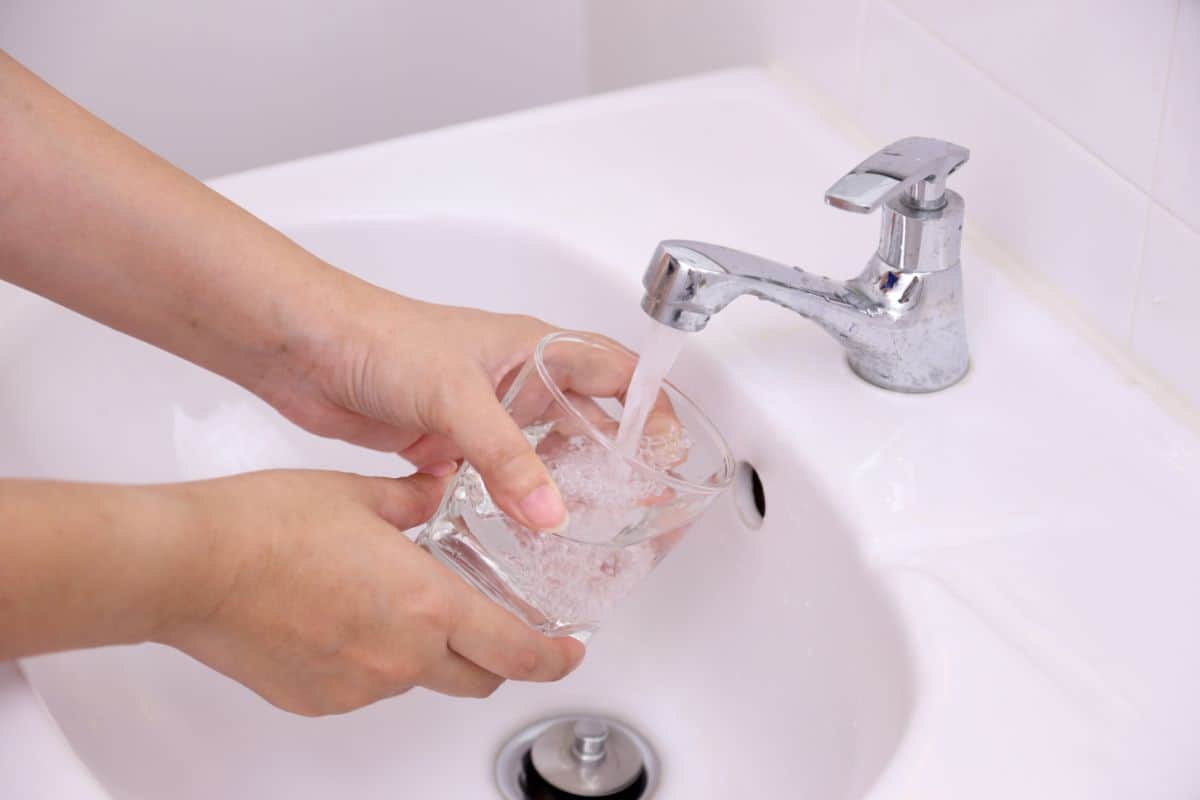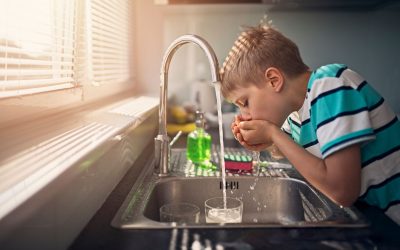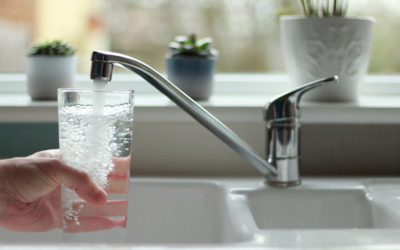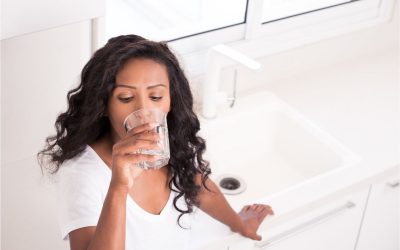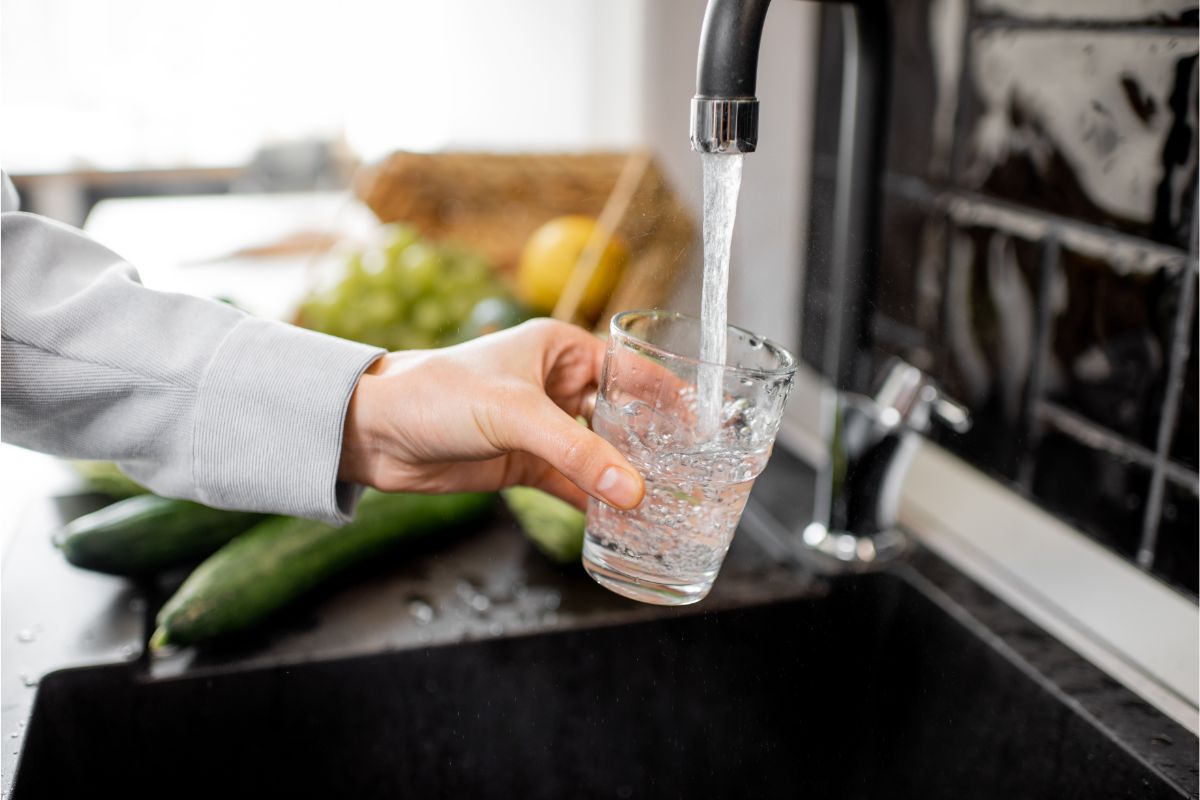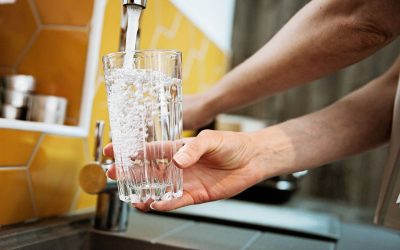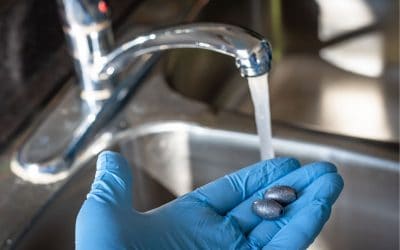Whether you’re local to the area or you’re taking a weekend vacation, it’s always important to know whether the tap water is safe to drink in a specific country or state.
It’s so easy to assume that all tap water is safe to consume if you can in your home, but sadly, this isn’t always the case.
If you’re visiting friends and family in Philly, the last thing you want is to get sick from accidentally consuming tap water that you’re not meant to drink. So, is Philadelphia tap water safe to drink?
No products found.
No products found.
Here is everything you need to know about whether you can safely drink the tap water in Philadelphia or not.
Contents
Can I drink tap water in Philadelphia?
Fortunately, yes, you can drink tap water in Philadelphia!
The tap water in Philadelphia is monitored and tested daily by the Philadelphia Water Department, which strives to ensure the water is free from microorganisms that would otherwise make you sick.
In fact, the record has been clean for decades, making Philadelphia’s tap water one of the safest to drink in the country.
As the tap water in Philadelphia meets the safety requirements set out by the state of Pennsylvania, it’s very rare that you would get sick from Philly’s tap water.
So, if you’re traveling to Philadelphia for a weekend break or vacation from elsewhere in the world.
You’ll be happy to know that you can safely drink the tap water there. This is great for saving money on endless bottles of water, that’s for sure!
Can I get sick from drinking tap water from Philadelphia?
Tap water from Philadelphia meets all state and federal safety requirements, meaning it is totally safe to drink.
Due to rigorous daily testing and monitoring, the water is free from bacteria and microorganisms that would otherwise make you sick.
If you do get sick during your time in Philly, it’s likely due to something else that you have consumed or come into contact with.
Philadelphia is a thriving city, after all, meaning it is filled with germs and bacteria that are found in the drinking water.
So, if you do find yourself sick in Philadelphia, it’s not likely due to the water itself.
You’ll need to consider everything else you came into contact with during your time there, such as food, public transport, or even the possibility of being in close proximity with a stranger who is also sick.
Does tap water taste good in Philadelphia?
So, we’ve established that it is safe to drink tap water in Philadelphia, but does it actually taste nice?
Unless you’re one of those people who genuinely can’t taste the difference between different tap waters, you might not actually enjoy the taste of tap water in Philly.
This is due to the addition of chloramine in the water.
Chloramine is a mixture of chlorine and ammonia, which is added to the water supply during the daily monitoring process.
This is designed to rid the water supply of microorganisms and bacteria that would otherwise be harmful to consume.
While it might sound scary, the amount of chloramine added to the water source is completely within the regulations as laid out by the state and is 100% safe to consume.
The only downside to such addition is that it makes the tap water taste a bit odd. That’s why many locals opt for water filter installation in Philadelphia, ensuring fresh pure drinking water for their family.
You probably won’t taste much of a difference from other cities’ tap waters, but if you only ever drink bottled water, you might get a hint of chlorine in the tap water of Philadelphia.
Honestly, it all comes down to personal preference.
It’’s no secret that tap water in the city is going to taste different to tap water in the country, and it’s all down to where the water has actually come from.
Where does Philadelphia tap water come from?
The tap water in Philadelphia comes from three places – two intakes on the Schuylkill River and one on the Delaware River.
You have to remember that these rivers are close to the bustling city of Philly, meaning they are exposed to a lot of dirt, bacteria, germs, trash, and pollution.
However, this doesn’t mean that the water doesn’t go through extensive purifying processes to ensure that the bacteria doesn’t enter your tap.
In fact, the water in the rivers is distinctly cleaner than it has been in recent decades – but you’ve just got to remember that it’s not nearly as clean as water from more rural sources.
As a result of this, the Philadelphia Water Department deliberately fills the water with chemicals that kill microorganisms that are harmful to consume.
Such chemicals include chlorine and ammonia, which are safe to drink in moderate amounts.
Can I drink tap water anywhere in Philadelphia?
So, if you’re visiting a restaurant, café, or any public space in Philly, you might be wondering if you can safely drink the tap water there.
As all tap water in Philadelphia is controlled by the Philadelphia Water Department, then it’s safe to assume that all tap water in public spaces in the city is clean.
However, if you are particularly paranoid about the cleanliness of the tap water, you can always ask the staff at the establishment if they think the water is safe to drink.
In the vast majority of cases, you are absolutely safe to drink tap water in public spaces around Philadelphia.
Not only because of the extensive cleaning processes, but Philadelphia is a forward-thinking city that is conscious about waste, and is making efforts to minimize the use of excessive plastic water bottles.
So, if you’re conscious about wasting plastic and resources, then bring a reusable cup or bottle to public spaces around the city and use the tap water to refill regularly!
### Recent Concerns About Pennsylvania, PA Tap Water Quality
In recent months, Pennsylvania has faced several tap water quality issues, prompting concern among residents and scrutiny from local authorities. One major issue has been the detection of elevated levels of lead in the drinking water of several communities, particularly in older neighborhoods with aging infrastructure. The Pennsylvania Department of Environmental Protection (DEP) has been actively involved in addressing these concerns by implementing more stringent monitoring and testing procedures.
Additionally, there have been reports of PFAS (per- and polyfluoroalkyl substances) contamination in certain areas, notably near military bases and industrial sites. These chemicals, often referred to as "forever chemicals," have been linked to adverse health effects, leading to increased efforts by the DEP and the Environmental Protection Agency (EPA) to mitigate their presence in the water supply.
In response to these issues, local water authorities have initiated public awareness campaigns and provided residents with resources for testing and mitigating contamination. The state is also exploring long-term solutions, such as updating infrastructure and adopting new filtration technologies, to ensure safe drinking water for all residents.
Pennsylvania Department of Environmental Protection Takes Action on PFAS Contamination
https://www.pennlive.com/news/2023/09/pa-dep-takes-action-on-pfas-contamination-in-drinking-water.html
Elevated Lead Levels Found in Pennsylvania Drinking Water
https://www.phillyvoice.com/lead-levels-pennsylvania-drinking-water-2023/
State Officials Address Water Quality Concerns in Pennsylvania
https://www.wgal.com/article/state-officials-address-water-quality-concerns-pennsylvania/45038912
Conclusion
So, there you have it! If you are visiting Philadelphia from another state or country, you’ll be happy to know that the water is safe to consume.
Of course, it might not taste as delicious as other tap waters across the world, but it’s not going to make you sick!
No products found.
